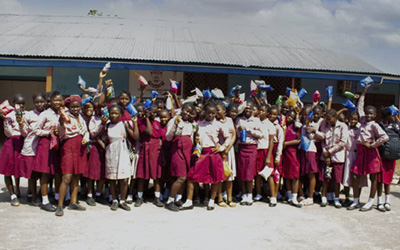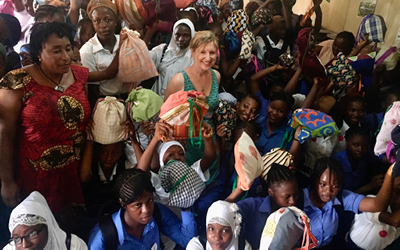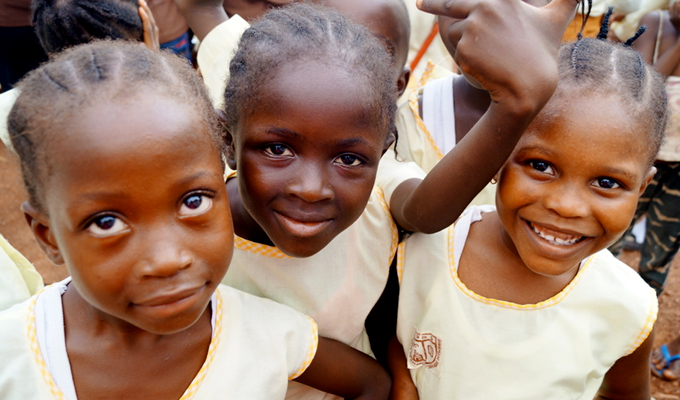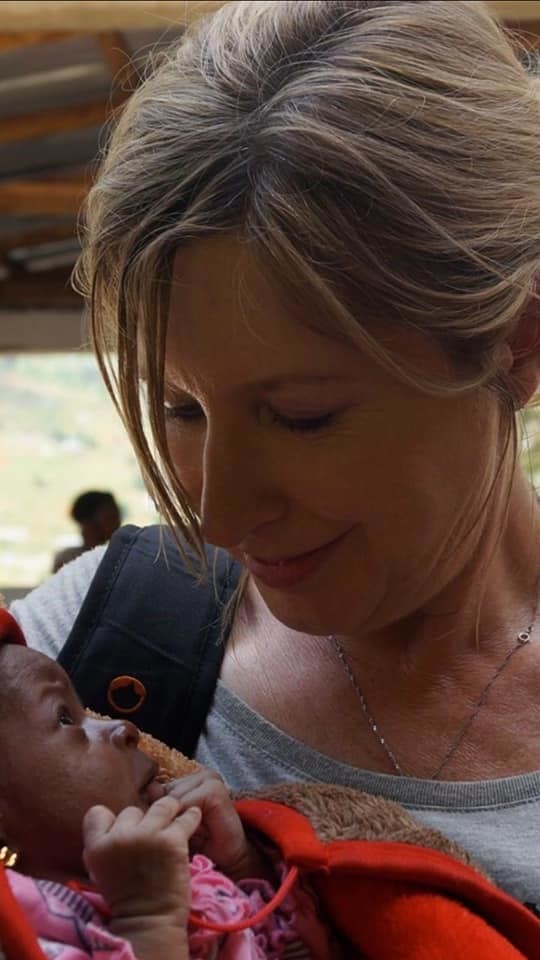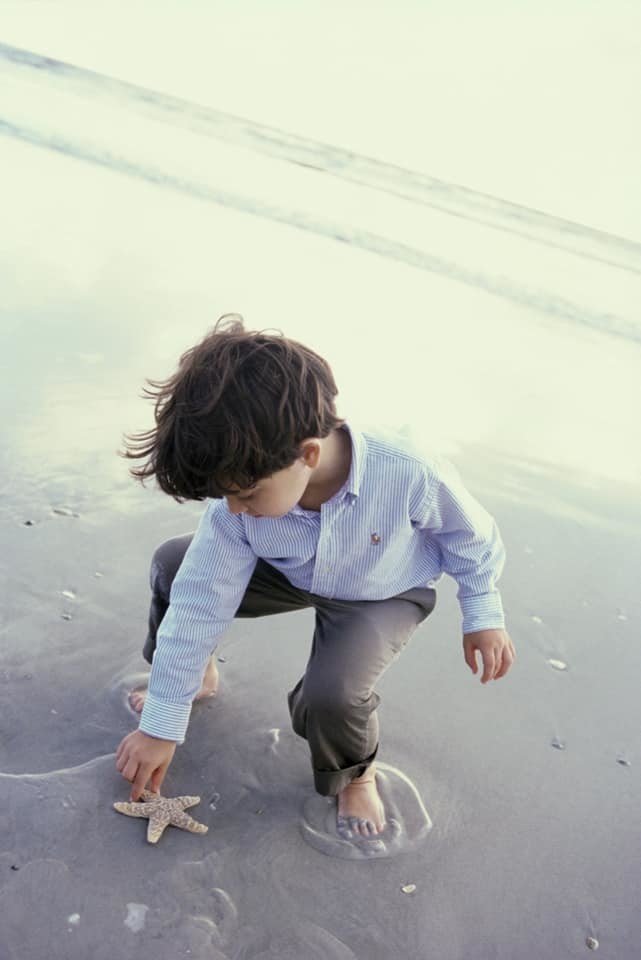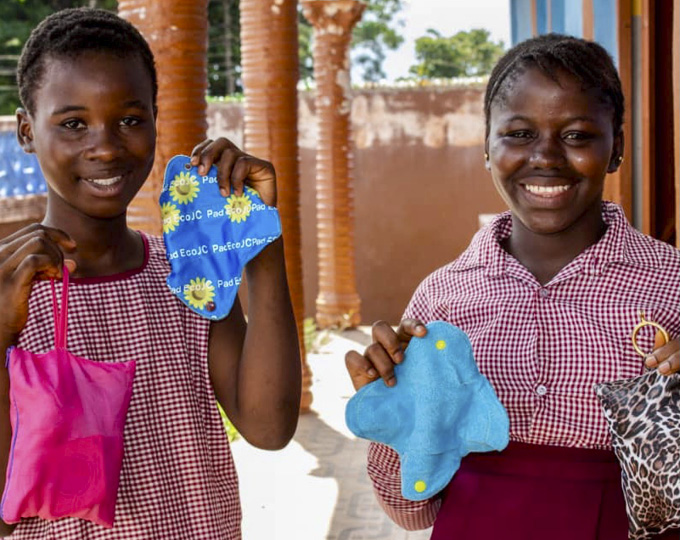
Menstrual Hygiene in Sierra Leone
Let’s talk Periods!
With Menstrual Hygiene Day just around the corner, we thought we would take this opportunity to talk about how ‘menses’ (periods) affects girls of menstruating age in The Fig Tree Children.
If you would like to help to end ‘period poverty’ please have a look at our campaign at the end of this article.
Whenever you try to bring up the topic of menstruation with people in Sierra Leone, there’s definitely the feeling that periods are a taboo topic. It doesn’t surprise me to learn, that the first time most girls in Sierra Leone get their period, they have no idea what’s happening. If a girl is registered in The Fig Tree program, then she will be going to school and I would imagine if she had her period at school, this would be a challenging time for her. While she might have heard about sanitary pads, she probably will have also heard about how they can cause infertility, they’re expensive, and they’re difficult to source. She will have to try and manage her menses with ‘pieces’ (small scraps of fabric or old cloth) which as you might imagine, wouldn’t be very hygienic. If the school she attends has toilet facilities, the toilets are most probably shared with boys so privacy would be an issue. Imagine having blood on your hands and needing to wash it off! She’s likely to get teased. If her teacher is a male, she won’t have anyone to go to for support.
It’s no wonder so many girls stay home from school rather than deal with all this potential embarrassment and shame. Girls lose weeks of school a year simply because they don’t have a reliable way to manage their period!
It’s a pretty scary time for these girls. They hear stories about how once they get their period, it’s the end of their childhood, that she’s now mature and ready to have sex or have a lover, that she’s already having sex because she has her period and that she should now drop out of school and get married. Can you imagine being as young as 10 or 11 years of age and hearing this!
In Sierra Leone, teenage pregnancy and child marriage are common: data from 2015 show that nearly 40 per cent of girls are married before their 18th birthday.
However, the good news is that there are organisations in the community that are trying to put a stop to the myths, and they are educating women and girls on the truth about menstruation and sexual health. They give them practical advice and are also providing access to sanitary pads. One such organisation is Girl Child Network (GCN). Not only are they educating girls, but they also make reusable sanitary pads which they distribute to the girls who attend their training workshops. The pads they make are based on Freeda Thong’s Ecopads. In 2016, The Fig Tree Children founder, Jane, was in Sierra Leone when a container that had been shipped loaded with bicycles donated by Bikes4Life, and a few other items. Jane distributed the donated sanitary pads and gave Aminata Kamara from GCNSL 200 sanitary hygiene kits from Days for Girls Toowoomba and 30 kits from Freeda Thong at Ecopads Australia. 30 girls trialled the two different designs and chose Ecopads as the design they liked the most, hence Anita choosing to make a sanitary pad based on Freeda’s design.
Having access to sanitary pads (reusable or disposable) improves women’s physical health and restores their sense of dignity.
Using the ‘pieces’ many girls use to manage their menses often gives the girls wounds, rashes and infection. After a while of wearing pieces, there is usually an offensive smell or odour. Having access to sanitary pads makes all the difference. The girls feel cleaner and fresher.
Reusable or Disposable?
While having any type of sanitary pad over ‘pieces’ is better, the disposal of used disposable pads is a big challenge. Waste is a global dilemma and there’s no question that replacing reusable ‘pieces’ with disposable pads is contributing to that problem. However, for girls who don’t easily have access to clean water, reusable pads that can’t be cleaned adequately is also a problem. What’s important is that these girls have the best type of sanitary pad depending on their circumstances, reusable or disposable are both better than just ‘pieces’.
Periods cause challenges for women – regardless of where in the world they live. But they are a fact of life. It is not acceptable that — for some women and girls — periods stand in the way of their right to education. Or that they are the catalyst for early marriage. Or even a source of shame and ridicule.
Here at The Fig Tree Children, we want to make sure that our girls all have access to sanitary pads, reusable if they have access to clean water to clean them adequately, or disposable, if not. However, it’s their right to choose, as it is ours too. We are starting to become more aware of the environmental effects of our actions and more and more girls are looking to reusable pads as their choice of sanitary pad. By educating girls in Sierra Leone about environmental issues will equip them to make that decision too.
We’re running a campaign to give a girl in Sierra Leone a year’s worth of sanitary pads (disposable or reusable, depending on their circumstances).
At The fig Tree Children, we are supporting children through their education by paying school fees and giving their carer a monthly allowance to help care for them. Ensuring the girls, we support, have what they need to help them during menstruation is important to us and them. We don’t want girls missing days from school because of their periods.
A donation of 30 AUD will not only give a girl a year’s supply of sanitary wear, but where reusable pads are chosen, she will also attend a menstrual and sexual health workshop and receive a menstrual bracelet. $10 of the donation will also go towards The Fig Tree Children’s Emergency Health Fund.
For girls who prefer disposable over reusable sanitary pads, we will purchase these in bulk from a local supplier, keeping our expenses to a minimum whilst supporting local business in Sierra Leone.
A $30 one-off donation will buy (for one girl):
- One year’s supply of sanitary pads (reusable or disposable)
- Menstrual and Sexual Health Training (when reusable pads are purchased)
- Menstrual Bracelet (when reusable pads are purchased)
- A $10 donation to The Fig Tree Children emergency health fund.
References
Macrotrends LLC, 2010-2020. Sierra Leone Youth Unemployment Rate 1991-2020. Available at: https://www.macrotrends.net/countries/SLE/sierra-leone/youth-unemployment-rate
One Girl, 2019. International Women’s Day: We’re talking periods. Available at: https://www.onegirl.org.au/news-and-stories/media-release-2019–international-womens-day
Mason, H. September 2017. Ending Child Marriage and Teenage Pregnancy in Sierra Leone. Available at: https://www.unicef.org/stories/ending-child-marriage-and-teenage-pregnancy-sierra-leone
Provide a year’s supply of sanitary pads for one girl
Help us provide 200 girls in Sierra Leone with a year's supply of sanitary pads (reusable or disposable depending on the girl's preference and circumstances). $5 AUD of each donation will also go towards The Fig Tree Children's 'Emergency Health Fund', helping provide for our children when they get sick.
To date, we have provided sanitary pads for 88 girls and $440 has been donated to our healthcare fund.
Thank you to all of you who have supported this campaign ????
